Abraham b. Mordecai Farissol (אברהם בן מרדכי פריצול) (Date active: 1473)
- Details
- Graphic Elements (344)
- Specimens (11)
Details
Abraham b. Mordecai Farissol
אברהם בן מרדכי פריצול
1473
Born in Avignon, France in 1451, the Italian scholar and geographer lived until 1525, as per Grätz, though Zunz suggests he was still alive in 1526. After initially residing in Avignon in 1468, he later moved to Mantua and then Ferrara in 1473. In Ferrara, he served as a cantor in the synagogue, engaged in manuscript copying, and wrote a polemical work, "Magen Abraham," addressing Christianity and Islam. He also penned a brief commentary on the Pentateuch and a commentary on Job in "Biblia Rabbinica" (Venice, 1518).
His most significant contribution was the "Iggeret Oreḥot 'Olam," a cosmographic and geographic work with thirty chapters (1524, Ferrara; 1587, Venice), discussing newly discovered parts of the world, travelers' tales, and the Ten Tribes. Farissol stands out as the first Jewish scholar to delve into geography. Hyde translated the "Iggeret" into Latin as "Tractatus Itinerum Mundi" (Oxford, 1691). In 1525, Farissol authored a commentary on Ecclesiastes (De Rossi, ib. No. 48) and translated Aristotle's "Logic" and Porphyry's compendium into Hebrew (De Rossi, ib. No. 145). Some of Farissol's sermons and letters from 1468 and 1474, addressed to contemporaries such as Messer Leon of Ferrara, have also been preserved.
Bibliography:
Wolf, Bibl. Hebr. iii., No. 117;
De Rossi, MSS. Codices, i. 95-97;
idem, Dizionario, pp. 117, 118;
Steinschneider, Cat. Bodl. col. 689;
idem, Hebr. Uebers. p. 81;
idem, Hebr. Bibl. vii. 27, 28; ix. 115;
Michael, Or ha-Ḥayyim, pp. 91, 92;
Kirchheim, in Orient, Lit. vi. 7;
Michael, ib. vi. 253;
Grätz, Gesch. 3d ed., viii. 457, ix. 44-46;
Fürst, Bibl. Jud. i. 276;
Gross, Gallia Judaica, p. 11;
Fuenn, Keneset Yisrael, pp. 52, 53;
Abraham Pesaro, in Il Vessillo Israelitico, 1879, p. 170;
Jewish Encyclopedia, ad vocem.
His most significant contribution was the "Iggeret Oreḥot 'Olam," a cosmographic and geographic work with thirty chapters (1524, Ferrara; 1587, Venice), discussing newly discovered parts of the world, travelers' tales, and the Ten Tribes. Farissol stands out as the first Jewish scholar to delve into geography. Hyde translated the "Iggeret" into Latin as "Tractatus Itinerum Mundi" (Oxford, 1691). In 1525, Farissol authored a commentary on Ecclesiastes (De Rossi, ib. No. 48) and translated Aristotle's "Logic" and Porphyry's compendium into Hebrew (De Rossi, ib. No. 145). Some of Farissol's sermons and letters from 1468 and 1474, addressed to contemporaries such as Messer Leon of Ferrara, have also been preserved.
Bibliography:
Wolf, Bibl. Hebr. iii., No. 117;
De Rossi, MSS. Codices, i. 95-97;
idem, Dizionario, pp. 117, 118;
Steinschneider, Cat. Bodl. col. 689;
idem, Hebr. Uebers. p. 81;
idem, Hebr. Bibl. vii. 27, 28; ix. 115;
Michael, Or ha-Ḥayyim, pp. 91, 92;
Kirchheim, in Orient, Lit. vi. 7;
Michael, ib. vi. 253;
Grätz, Gesch. 3d ed., viii. 457, ix. 44-46;
Fürst, Bibl. Jud. i. 276;
Gross, Gallia Judaica, p. 11;
Fuenn, Keneset Yisrael, pp. 52, 53;
Abraham Pesaro, in Il Vessillo Israelitico, 1879, p. 170;
Jewish Encyclopedia, ad vocem.
Graphic Elements
Abbreviation
Parma, Palatina MS. Parm. 2727: Abbreviation - #24158
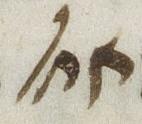
Florence, Laurenz. MS. Plut.88.32: Abbreviation - #30558

Parma, Palatina MS. Parm. 2727: Abbreviation - #24133

Florence, Laurenz. MS. Plut.88.32: Abbreviation - #4258

Decoration
Florence, Laurenz. MS. Plut.88.32: Decoration - #4123
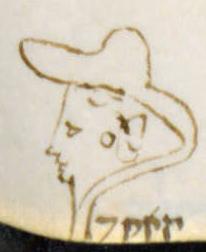
Parma, Palatina MS. Parm. 3003: Decoration - #30084
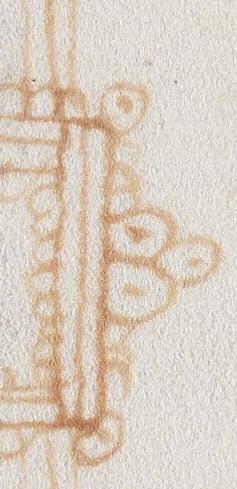
Parma, Palatina MS. Parm. 3003: Decoration - #30086
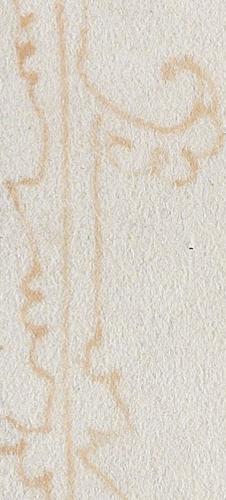
Parma, Palatina MS. Parm. 2376: Decoration - #27335
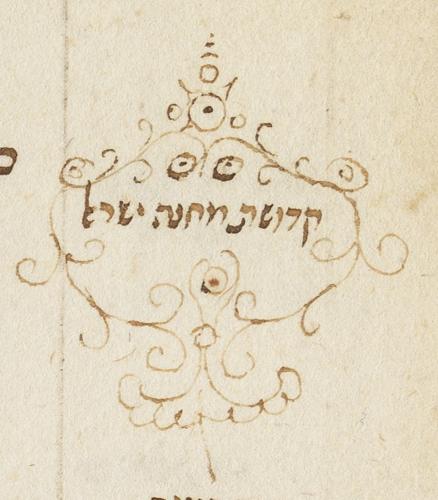
Parma, Palatina MS. Parm. 3003: Decoration - #30085
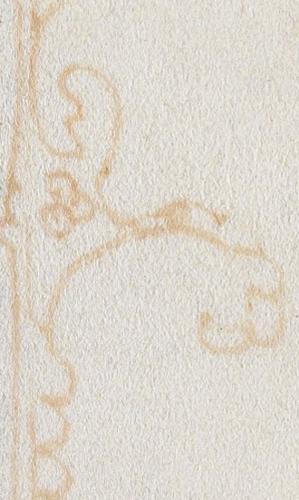
Divine Symbol
Parma, Palatina MS. Parm. 2727: Divine Symbol - #24117
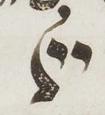
Parma, Palatina MS. Parm. 3003: Divine Symbol - #30088

Parma, Palatina MS. Parm. 2727: Divine Symbol - #24119

Parma, Palatina MS. Parm. 3003: Divine Symbol - #30087

Editorial Symbol
Florence, Laurenz. MS. Plut.88.32: Editorial Symbol - #30651
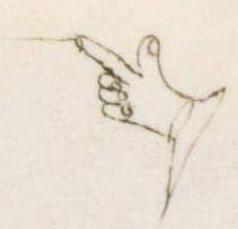
Florence, Laurenz. MS. Plut.88.32: Editorial Symbol - #30536

Justification
Parma, Palatina MS. Parm. 2727: Justification - #24120

Florence, Laurenz. MS. Plut.88.32: Justification - #4130

Parma, Palatina MS. Parm. 2727: Justification - #24125

Florence, Laurenz. MS. Plut.88.32: Justification - #30553

Parma, Palatina MS. Parm. 2727: Justification - #24127

Parma, Palatina MS. Parm. 2727: Justification - #24128

Parma, Palatina MS. Parm. 2729: Justification - #24411
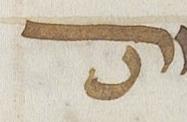
Parma, Palatina MS. Parm. 2729: Justification - #24410
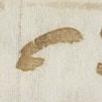
Florence, Laurenz. MS. Plut.88.32: Justification - #30535

Parma, Palatina MS. Parm. 2729: Justification - #24409

Parma, Palatina MS. Parm. 2727: Justification - #24129
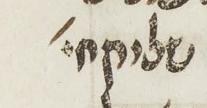
Florence, Laurenz. MS. Plut.88.32: Justification - #4257

Florence, Laurenz. MS. Plut.88.32: Justification - #30655

Parma, Palatina MS. Parm. 2729: Justification - #24408
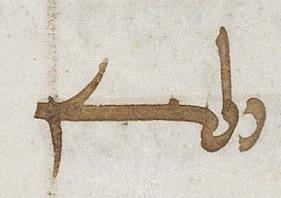
Parma, Palatina MS. Parm. 2727: Justification - #24126

Parma, Palatina MS. Parm. 3003: Justification - #30359
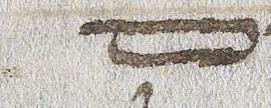
Parma, Palatina MS. Parm. 3003: Justification - #30360

Letter
Aleph
Florence, Laurenz. MS. Plut.88.32: Letter - #30636

Parma, Palatina MS. Parm. 3003: Letter - #30344

Parma, Palatina MS. Parm. 1922: Letter - #21247
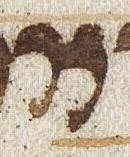
Parma, Palatina MS. Parm. 2729: Letter - #24282

Parma, Palatina MS. Parm. 2727: Letter - #24092

Florence, Laurenz. MS. Plut.88.32: Letter - #4122

Parma, Palatina MS. Parm. 2729: Letter - #24493

Parma, Palatina MS. Parm. 2376: Letter - #27322

Parma, Palatina MS. Parm. 2727: Letter - #24089
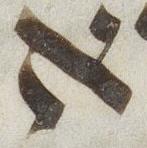
Parma, Palatina MS. Parm. 1776: Letter - #20546
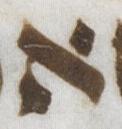
Florence, Laurenz. MS. Plut.88.32: Letter - #30570

Florence, Laurenz. MS. Plut.88.32: Letter - #30545

Beth
Parma, Palatina MS. Parm. 2729: Letter - #24496

Parma, Palatina MS. Parm. 2727: Letter - #24094

Parma, Palatina MS. Parm. 2376: Letter - #27329

Parma, Palatina MS. Parm. 2729: Letter - #24285

Parma, Palatina MS. Parm. 1776: Letter - #20580
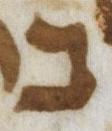
Parma, Palatina MS. Parm. 3003: Letter - #30343

Parma, Palatina MS. Parm. 2727: Letter - #24049
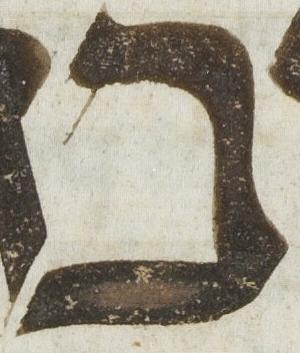
Florence, Laurenz. MS. Plut.88.32: Letter - #30556

Florence, Laurenz. MS. Plut.88.32: Letter - #4129

Parma, Palatina MS. Parm. 1922: Letter - #21244
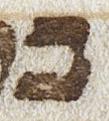
Gimel
Florence, Laurenz. MS. Plut.88.32: Letter - #4131

Parma, Palatina MS. Parm. 1776: Letter - #20585

Parma, Palatina MS. Parm. 3003: Letter - #30377

Florence, Laurenz. MS. Plut.88.32: Letter - #30654

Parma, Palatina MS. Parm. 3003: Letter - #30349

Parma, Palatina MS. Parm. 1922: Letter - #21249
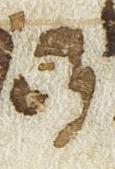
Parma, Palatina MS. Parm. 2729: Letter - #24286

Parma, Palatina MS. Parm. 2727: Letter - #24098

Florence, Laurenz. MS. Plut.88.32: Letter - #30566

Parma, Palatina MS. Parm. 2376: Letter - #27325
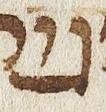
Daleth
Parma, Palatina MS. Parm. 2727: Letter - #24054
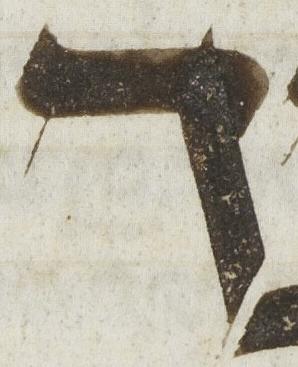
Florence, Laurenz. MS. Plut.88.32: Letter - #30554

Parma, Palatina MS. Parm. 2729: Letter - #24498

Parma, Palatina MS. Parm. 1922: Letter - #21248
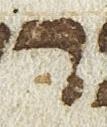
Florence, Laurenz. MS. Plut.88.32: Letter - #30656

Parma, Palatina MS. Parm. 1776: Letter - #20579
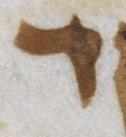
Parma, Palatina MS. Parm. 2727: Letter - #24096

Florence, Laurenz. MS. Plut.88.32: Letter - #4126

Parma, Palatina MS. Parm. 2729: Letter - #24284

Florence, Laurenz. MS. Plut.88.32: Letter - #4138

Parma, Palatina MS. Parm. 3003: Letter - #30338

Parma, Palatina MS. Parm. 2376: Letter - #27306

He
Parma, Palatina MS. Parm. 2727: Letter - #24059
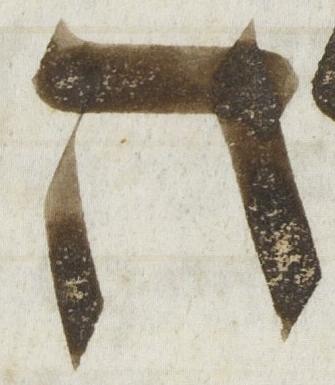
Florence, Laurenz. MS. Plut.88.32: Letter - #30543

Florence, Laurenz. MS. Plut.88.32: Letter - #30640

Parma, Palatina MS. Parm. 2376: Letter - #27332

Parma, Palatina MS. Parm. 1776: Letter - #20582
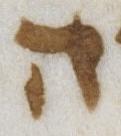
Parma, Palatina MS. Parm. 3003: Letter - #30346

Parma, Palatina MS. Parm. 2727: Letter - #24102

Parma, Palatina MS. Parm. 1922: Letter - #21254
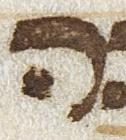
Parma, Palatina MS. Parm. 2729: Letter - #24288

Florence, Laurenz. MS. Plut.88.32: Letter - #4125

Parma, Palatina MS. Parm. 2729: Letter - #24500

Vav
Parma, Palatina MS. Parm. 3003: Letter - #30372

Parma, Palatina MS. Parm. 2729: Letter - #24391

Florence, Laurenz. MS. Plut.88.32: Letter - #30564

Parma, Palatina MS. Parm. 1922: Letter - #21255

Parma, Palatina MS. Parm. 2727: Letter - #24051
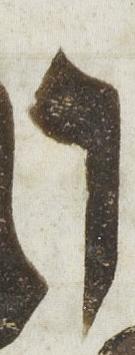
Parma, Palatina MS. Parm. 2729: Letter - #24501

Parma, Palatina MS. Parm. 2729: Letter - #24392

Parma, Palatina MS. Parm. 2376: Letter - #27334

Parma, Palatina MS. Parm. 2727: Letter - #24097

Parma, Palatina MS. Parm. 1776: Letter - #20588

Florence, Laurenz. MS. Plut.88.32: Letter - #30644

Florence, Laurenz. MS. Plut.88.32: Letter - #4132

Zayin
Parma, Palatina MS. Parm. 2729: Letter - #24393

Florence, Laurenz. MS. Plut.88.32: Letter - #30557

Parma, Palatina MS. Parm. 2376: Letter - #27326

Parma, Palatina MS. Parm. 1776: Letter - #20578

Parma, Palatina MS. Parm. 3003: Letter - #30373

Florence, Laurenz. MS. Plut.88.32: Letter - #4135

Parma, Palatina MS. Parm. 2727: Letter - #24065

Parma, Palatina MS. Parm. 1922: Letter - #21253
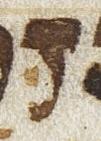
Parma, Palatina MS. Parm. 2727: Letter - #24135

Ḥeth
Parma, Palatina MS. Parm. 2727: Letter - #24063
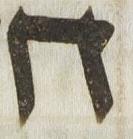
Parma, Palatina MS. Parm. 2729: Letter - #24503
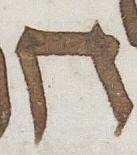
Parma, Palatina MS. Parm. 1922: Letter - #21245
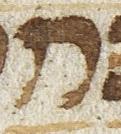
Parma, Palatina MS. Parm. 1776: Letter - #20575
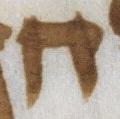
Florence, Laurenz. MS. Plut.88.32: Letter - #4256

Parma, Palatina MS. Parm. 3003: Letter - #30336

Parma, Palatina MS. Parm. 2727: Letter - #24137

Parma, Palatina MS. Parm. 2376: Letter - #27291

Florence, Laurenz. MS. Plut.88.32: Letter - #30548

Parma, Palatina MS. Parm. 2729: Letter - #24394

Ṭeth
Florence, Laurenz. MS. Plut.88.32: Letter - #30562

Florence, Laurenz. MS. Plut.88.32: Letter - #30639

Parma, Palatina MS. Parm. 1776: Letter - #20573
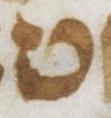
Parma, Palatina MS. Parm. 3003: Letter - #30367

Parma, Palatina MS. Parm. 2727: Letter - #24101

Parma, Palatina MS. Parm. 2727: Letter - #24090
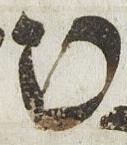
Parma, Palatina MS. Parm. 2376: Letter - #27309

Parma, Palatina MS. Parm. 2729: Letter - #24395

Florence, Laurenz. MS. Plut.88.32: Letter - #30540

Yod
Parma, Palatina MS. Parm. 2729: Letter - #24507

Parma, Palatina MS. Parm. 2729: Letter - #24396

Parma, Palatina MS. Parm. 2729: Letter - #24397

Florence, Laurenz. MS. Plut.88.32: Letter - #4255

Parma, Palatina MS. Parm. 1922: Letter - #21256

Parma, Palatina MS. Parm. 1776: Letter - #20587

Florence, Laurenz. MS. Plut.88.32: Letter - #30567

Parma, Palatina MS. Parm. 2376: Letter - #27333

Parma, Palatina MS. Parm. 2727: Letter - #24056
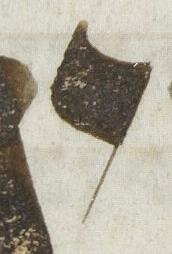
Parma, Palatina MS. Parm. 2727: Letter - #24099

Parma, Palatina MS. Parm. 3003: Letter - #30374

Florence, Laurenz. MS. Plut.88.32: Letter - #30642

Parma, Palatina MS. Parm. 2729: Letter - #24505

Kaph
Parma, Palatina MS. Parm. 2729: Letter - #24407

Parma, Palatina MS. Parm. 1922: Letter - #21239
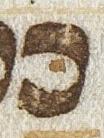
Parma, Palatina MS. Parm. 2376: Letter - #27315

Parma, Palatina MS. Parm. 3003: Letter - #30353

Parma, Palatina MS. Parm. 2727: Letter - #24139

Parma, Palatina MS. Parm. 1776: Letter - #20581
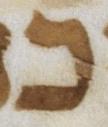
Parma, Palatina MS. Parm. 2727: Letter - #24084

Florence, Laurenz. MS. Plut.88.32: Letter - #30533

Florence, Laurenz. MS. Plut.88.32: Letter - #30568

Kaph: final
Parma, Palatina MS. Parm. 1922: Letter - #21242
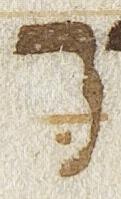
Parma, Palatina MS. Parm. 3003: Letter - #30375

Parma, Palatina MS. Parm. 2729: Letter - #24419

Florence, Laurenz. MS. Plut.88.32: Letter - #4144

Parma, Palatina MS. Parm. 1776: Letter - #20583
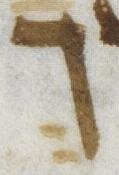
Parma, Palatina MS. Parm. 2376: Letter - #27324

Parma, Palatina MS. Parm. 2727: Letter - #24151

Parma, Palatina MS. Parm. 2729: Letter - #24413

Lamed
Parma, Palatina MS. Parm. 2729: Letter - #24508
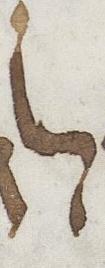
Parma, Palatina MS. Parm. 2376: Letter - #27328

Parma, Palatina MS. Parm. 3003: Letter - #30352

Florence, Laurenz. MS. Plut.88.32: Letter - #4136

Parma, Palatina MS. Parm. 1922: Letter - #21246
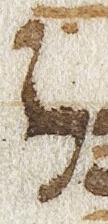
Florence, Laurenz. MS. Plut.88.32: Letter - #30637

Parma, Palatina MS. Parm. 2727: Letter - #24150

Parma, Palatina MS. Parm. 2727: Letter - #24091
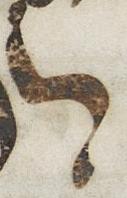
Parma, Palatina MS. Parm. 2729: Letter - #24416

Parma, Palatina MS. Parm. 1776: Letter - #20576

Florence, Laurenz. MS. Plut.88.32: Letter - #30559

Mem
Parma, Palatina MS. Parm. 2727: Letter - #24152

Parma, Palatina MS. Parm. 2729: Letter - #24398

Parma, Palatina MS. Parm. 3003: Letter - #30363

Parma, Palatina MS. Parm. 2729: Letter - #24510

Parma, Palatina MS. Parm. 3003: Letter - #30365

Parma, Palatina MS. Parm. 2727: Letter - #24079
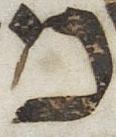
Parma, Palatina MS. Parm. 2376: Letter - #27320

Parma, Palatina MS. Parm. 1776: Letter - #20538
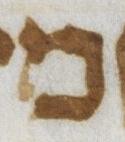
Florence, Laurenz. MS. Plut.88.32: Letter - #30555

Florence, Laurenz. MS. Plut.88.32: Letter - #30652

Florence, Laurenz. MS. Plut.88.32: Letter - #4260

Parma, Palatina MS. Parm. 1922: Letter - #21233
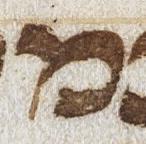
Mem: final
Parma, Palatina MS. Parm. 1922: Letter - #21235
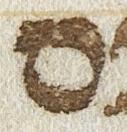
Florence, Laurenz. MS. Plut.88.32: Letter - #30569

Parma, Palatina MS. Parm. 2729: Letter - #24509
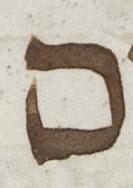
Parma, Palatina MS. Parm. 1776: Letter - #20537
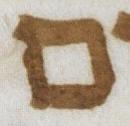
Parma, Palatina MS. Parm. 3003: Letter - #30376

Parma, Palatina MS. Parm. 2729: Letter - #24399

Parma, Palatina MS. Parm. 2729: Letter - #24400

Parma, Palatina MS. Parm. 2727: Letter - #24100

Florence, Laurenz. MS. Plut.88.32: Letter - #30537

Florence, Laurenz. MS. Plut.88.32: Letter - #30633

Parma, Palatina MS. Parm. 2727: Letter - #24080
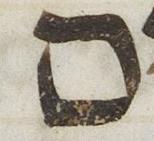
Parma, Palatina MS. Parm. 2376: Letter - #27318

Nun
Parma, Palatina MS. Parm. 2727: Letter - #24159

Parma, Palatina MS. Parm. 3003: Letter - #30379

Florence, Laurenz. MS. Plut.88.32: Letter - #30632

Parma, Palatina MS. Parm. 1922: Letter - #21252

Parma, Palatina MS. Parm. 2376: Letter - #27331

Parma, Palatina MS. Parm. 1776: Letter - #20586
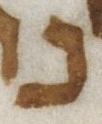
Parma, Palatina MS. Parm. 2729: Letter - #24405

Parma, Palatina MS. Parm. 2727: Letter - #24081
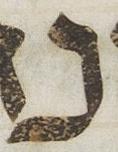
Florence, Laurenz. MS. Plut.88.32: Letter - #4261

Florence, Laurenz. MS. Plut.88.32: Letter - #30544

Parma, Palatina MS. Parm. 2729: Letter - #24511

Nun: final
Parma, Palatina MS. Parm. 3003: Letter - #30357

Parma, Palatina MS. Parm. 1922: Letter - #21251

Parma, Palatina MS. Parm. 2729: Letter - #24404

Parma, Palatina MS. Parm. 2727: Letter - #24149

Parma, Palatina MS. Parm. 2727: Letter - #24068

Florence, Laurenz. MS. Plut.88.32: Letter - #4133

Florence, Laurenz. MS. Plut.88.32: Letter - #30561

Parma, Palatina MS. Parm. 1776: Letter - #20584

Parma, Palatina MS. Parm. 2376: Letter - #27323

Samekh
Parma, Palatina MS. Parm. 2727: Letter - #24087

Parma, Palatina MS. Parm. 2729: Letter - #24406

Parma, Palatina MS. Parm. 2376: Letter - #27305

Parma, Palatina MS. Parm. 3003: Letter - #30378

Florence, Laurenz. MS. Plut.88.32: Letter - #30634

Florence, Laurenz. MS. Plut.88.32: Letter - #30542

Parma, Palatina MS. Parm. 1776: Letter - #20536
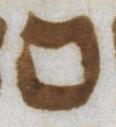
Parma, Palatina MS. Parm. 1922: Letter - #21241
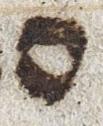
Florence, Laurenz. MS. Plut.88.32: Letter - #4140

Parma, Palatina MS. Parm. 2727: Letter - #24155

'Ayin
Florence, Laurenz. MS. Plut.88.32: Letter - #30565

Parma, Palatina MS. Parm. 2729: Letter - #24424

Parma, Palatina MS. Parm. 2729: Letter - #24512
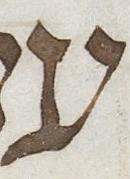
Parma, Palatina MS. Parm. 1776: Letter - #20574
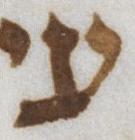
Parma, Palatina MS. Parm. 3003: Letter - #30345

Parma, Palatina MS. Parm. 2727: Letter - #24154

Florence, Laurenz. MS. Plut.88.32: Letter - #30534

Parma, Palatina MS. Parm. 1922: Letter - #21243
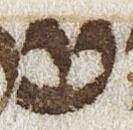
Parma, Palatina MS. Parm. 2376: Letter - #27327

Parma, Palatina MS. Parm. 2727: Letter - #24048
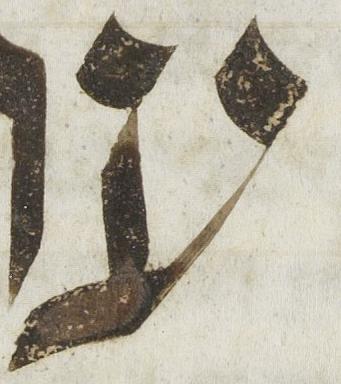
Pe
Parma, Palatina MS. Parm. 2727: Letter - #24153

Florence, Laurenz. MS. Plut.88.32: Letter - #30549

Parma, Palatina MS. Parm. 2376: Letter - #27319

Parma, Palatina MS. Parm. 3003: Letter - #30329

Parma, Palatina MS. Parm. 1776: Letter - #20539
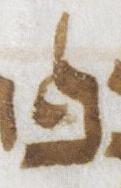
Parma, Palatina MS. Parm. 3003: Letter - #30350

Florence, Laurenz. MS. Plut.88.32: Letter - #30635

Florence, Laurenz. MS. Plut.88.32: Letter - #4143

Parma, Palatina MS. Parm. 1922: Letter - #21232
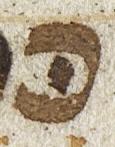
Parma, Palatina MS. Parm. 2729: Letter - #24426

Pe: final
Florence, Laurenz. MS. Plut.88.32: Letter - #4259

Parma, Palatina MS. Parm. 2727: Letter - #24160

Parma, Palatina MS. Parm. 3003: Letter - #30380

Parma, Palatina MS. Parm. 2729: Letter - #24401

Parma, Palatina MS. Parm. 2376: Letter - #27280

Ṣade
Parma, Palatina MS. Parm. 1776: Letter - #20540
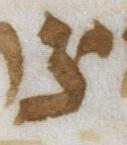
Parma, Palatina MS. Parm. 2729: Letter - #24402

Parma, Palatina MS. Parm. 2729: Letter - #24516
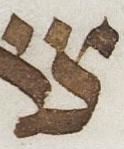
Parma, Palatina MS. Parm. 3003: Letter - #30351

Florence, Laurenz. MS. Plut.88.32: Letter - #30538

Parma, Palatina MS. Parm. 1922: Letter - #21236
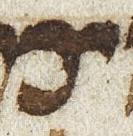
Parma, Palatina MS. Parm. 2376: Letter - #27297

Florence, Laurenz. MS. Plut.88.32: Letter - #30551

Parma, Palatina MS. Parm. 2727: Letter - #24095

Ṣade: final
Parma, Palatina MS. Parm. 3003: Letter - #30342

Parma, Palatina MS. Parm. 2376: Letter - #27283

Parma, Palatina MS. Parm. 1922: Letter - #21231
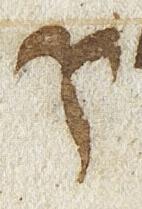
Parma, Palatina MS. Parm. 2727: Letter - #24156

Parma, Palatina MS. Parm. 1776: Letter - #20542
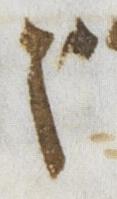
Florence, Laurenz. MS. Plut.88.32: Letter - #30546

Parma, Palatina MS. Parm. 2729: Letter - #24403

Qoph
Parma, Palatina MS. Parm. 1922: Letter - #21237
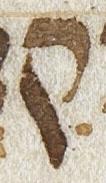
Parma, Palatina MS. Parm. 2729: Letter - #24458

Parma, Palatina MS. Parm. 2729: Letter - #24515
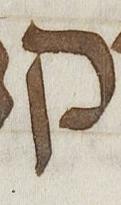
Parma, Palatina MS. Parm. 1776: Letter - #20544
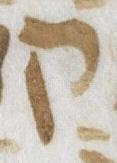
Parma, Palatina MS. Parm. 2376: Letter - #27301

Florence, Laurenz. MS. Plut.88.32: Letter - #30552

Parma, Palatina MS. Parm. 2727: Letter - #24146

Parma, Palatina MS. Parm. 3003: Letter - #30354

Parma, Palatina MS. Parm. 3003: Letter - #30355

Florence, Laurenz. MS. Plut.88.32: Letter - #30638

Florence, Laurenz. MS. Plut.88.32: Letter - #4127

Resh
Parma, Palatina MS. Parm. 2376: Letter - #27321

Florence, Laurenz. MS. Plut.88.32: Letter - #4124

Parma, Palatina MS. Parm. 2727: Letter - #24147

Parma, Palatina MS. Parm. 1922: Letter - #21234
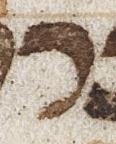
Parma, Palatina MS. Parm. 2729: Letter - #24287

Parma, Palatina MS. Parm. 2727: Letter - #24085

Florence, Laurenz. MS. Plut.88.32: Letter - #30643

Parma, Palatina MS. Parm. 2729: Letter - #24513
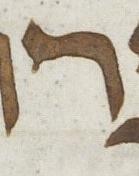
Florence, Laurenz. MS. Plut.88.32: Letter - #30563

Parma, Palatina MS. Parm. 3003: Letter - #30347

Parma, Palatina MS. Parm. 1776: Letter - #20541

Parma, Palatina MS. Parm. 3003: Letter - #30348

Shin/Sin
Parma, Palatina MS. Parm. 1776: Letter - #20545
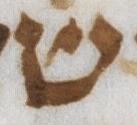
Parma, Palatina MS. Parm. 2729: Letter - #24281

Parma, Palatina MS. Parm. 2727: Letter - #24082

Parma, Palatina MS. Parm. 2727: Letter - #24148

Parma, Palatina MS. Parm. 3003: Letter - #30371

Parma, Palatina MS. Parm. 1922: Letter - #21250
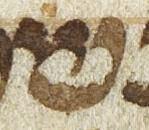
Florence, Laurenz. MS. Plut.88.32: Letter - #4141

Parma, Palatina MS. Parm. 2729: Letter - #24517
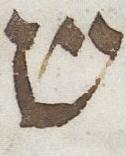
Parma, Palatina MS. Parm. 3003: Letter - #30368

Florence, Laurenz. MS. Plut.88.32: Letter - #30641

Florence, Laurenz. MS. Plut.88.32: Letter - #30550

Parma, Palatina MS. Parm. 2376: Letter - #27310

Tav
Florence, Laurenz. MS. Plut.88.32: Letter - #30653

Florence, Laurenz. MS. Plut.88.32: Letter - #30547

Parma, Palatina MS. Parm. 1776: Letter - #20543
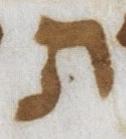
Parma, Palatina MS. Parm. 2727: Letter - #24088
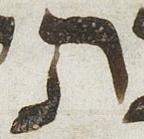
Parma, Palatina MS. Parm. 2727: Letter - #24093

Parma, Palatina MS. Parm. 1922: Letter - #21240
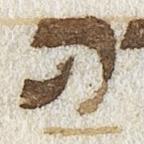
Parma, Palatina MS. Parm. 2729: Letter - #24514
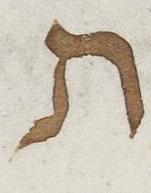
Parma, Palatina MS. Parm. 2729: Letter - #24463

Florence, Laurenz. MS. Plut.88.32: Letter - #4137

Parma, Palatina MS. Parm. 3003: Letter - #30341

Parma, Palatina MS. Parm. 2376: Letter - #27289
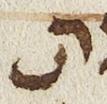
Ligature
Florence, Laurenz. MS. Plut.88.32: Ligature - #4128

Parma, Palatina MS. Parm. 2729: Ligature - #24417

Parma, Palatina MS. Parm. 2727: Ligature - #24131

Ligature-Connected
Florence, Laurenz. MS. Plut.88.32: Ligature-Connected - #30560

Nexus
Parma, Palatina MS. Parm. 1922: Nexus - #21238
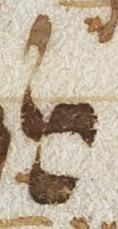
Parma, Palatina MS. Parm. 2727: Nexus - #24103

Florence, Laurenz. MS. Plut.88.32: Nexus - #30539

Parma, Palatina MS. Parm. 3003: Nexus - #30323

Parma, Palatina MS. Parm. 2729: Nexus - #24283

Parma, Palatina MS. Parm. 2729: Nexus - #24280

Parma, Palatina MS. Parm. 3003: Nexus - #30097

Parma, Palatina MS. Parm. 1776: Nexus - #20577
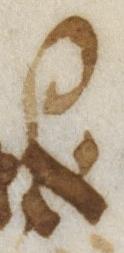
Parma, Palatina MS. Parm. 2376: Nexus - #27330

Punctuation
Parma, Palatina MS. Parm. 2727: Punctuation - #24123

Parma, Palatina MS. Parm. 2727: Punctuation - #24122

Florence, Laurenz. MS. Plut.88.32: Punctuation - #30645

Florence, Laurenz. MS. Plut.88.32: Punctuation - #30541

Vowel/Diacritic
Parma, Palatina MS. Parm. 3003: Vowel/Diacritic - #30095

Parma, Palatina MS. Parm. 3003: Vowel/Diacritic - #30096

Parma, Palatina MS. Parm. 3003: Vowel/Diacritic - #30094

Parma, Palatina MS. Parm. 3003: Vowel/Diacritic - #30093

Parma, Palatina MS. Parm. 3003: Vowel/Diacritic - #30092

Parma, Palatina MS. Parm. 3003: Vowel/Diacritic - #30091

Parma, Palatina MS. Parm. 3003: Vowel/Diacritic - #30090

Parma, Palatina MS. Parm. 3003: Vowel/Diacritic - #30089

Parma, Palatina MS. Parm. 2727: Vowel/Diacritic - #24157

Parma, Palatina MS. Parm. 3003: Vowel/Diacritic - #30334

Parma, Palatina MS. Parm. 3003: Vowel/Diacritic - #30333

Parma, Palatina MS. Parm. 3003: Vowel/Diacritic - #30331

Parma, Palatina MS. Parm. 3003: Vowel/Diacritic - #30327

Parma, Palatina MS. Parm. 3003: Vowel/Diacritic - #30326

Parma, Palatina MS. Parm. 3003: Vowel/Diacritic - #30325

Parma, Palatina MS. Parm. 3003: Vowel/Diacritic - #30324

Parma, Palatina MS. Parm. 3003: Vowel/Diacritic - #30322

Parma, Palatina MS. Parm. 3003: Vowel/Diacritic - #30321

Specimens
Florence, Laurenz. MS. Plut.88.32: Main text scribe - Cursive
Biblioteca Laurenziana (Florence, Italy)
Florence, Laurenz. MS. Plut.88.32: Main text scribe - Non-square (Beinoni)
Biblioteca Laurenziana (Florence, Italy)
Florence, Laurenz. MS. Plut.88.32: Main text scribe - Square
Biblioteca Laurenziana (Florence, Italy)
Parma, Palatina MS. Parm. 1776: Main text scribe - Square
Biblioteca Palatina (Parma, Italy)
Parma, Palatina MS. Parm. 1922: Main text scribe - Non-square (Beinoni)
Biblioteca Palatina (Parma, Italy)
Parma, Palatina MS. Parm. 2376: Main text scribe - Non-square (Beinoni)
Biblioteca Palatina (Parma, Italy)
Parma, Palatina MS. Parm. 2727: Main text scribe - Non-square (Beinoni)
Biblioteca Palatina (Parma, Italy)
Parma, Palatina MS. Parm. 2727: Main text scribe - Square
Biblioteca Palatina (Parma, Italy)
Parma, Palatina MS. Parm. 2729: Main text scribe - Non-square (Beinoni)
Biblioteca Palatina (Parma, Italy)
Parma, Palatina MS. Parm. 2729: Main text scribe - Square
Biblioteca Palatina (Parma, Italy)
Parma, Palatina MS. Parm. 3003: Main text scribe; Vocaliser - Non-square (Beinoni)
Biblioteca Palatina (Parma, Italy)